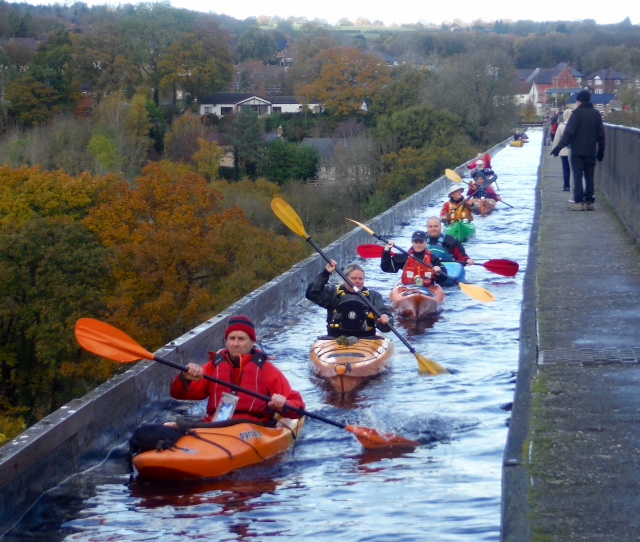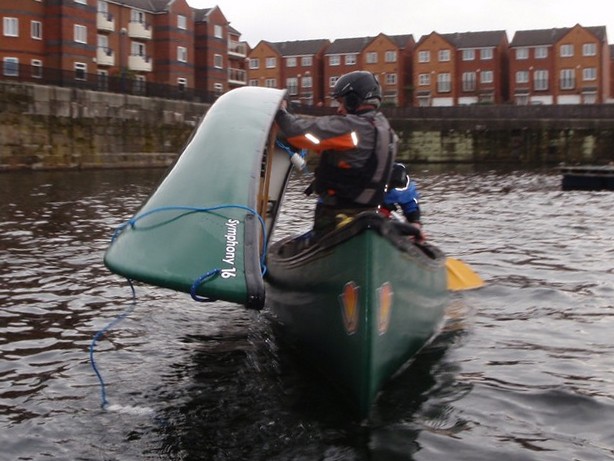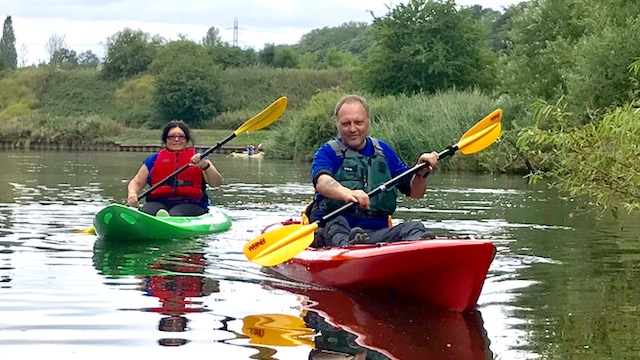Photos of past courses....... 
Many of our members have developed skills informally over the years during the many trips, pool and docks sessions. We offer a taught improvers course for any type of paddle craft, which follows the skills required for the British Canoeing Paddle Explore Award. The Explore Award is recognition of a paddler's ability to independently paddle their chosen craft in a sheltered water environment.
These courses are typically 3 sessions of 2 hours duration or a one-day trip. At the club we try to make the last session a trip on a local canal or flat water river such as River Dee or Weaver. Our club coaches will guide you through all the skills required to paddle independently on local water.
An improvement Award that helps paddlers develop fundamental paddlesport skills on flat water. The emphasis is on gaining a breadth of experience, creating the desired movement of the boat and developing an understanding into how the paddle, boat and water interact.
This Award is significantly different to the old 2 star, with a change to develop generic movement skills that can transfer to any discipline and with an assessed journey. Assessors will need to be able to assess the Award in a variety of craft.
LCC Paddle Explore Syllabus 
Paddle Explore Crib Card 
Physical skills
- Warm up
- Boat checks
- Lift, carry, launch
- Forward paddling
- Steering and control
- Back Paddling
- Using edging
- Stopping boat
- Getting in and out of boats
- Journey of 2-4 hours
- Emptying boats
- Capsize
- Try other crafts (multi hull)
- Rescues
- Leading a journey
- Securing boats on roof racks
- Recovery strokes
Theory
- Environment
- Safety
- Equipment
- Possible risk of paddling
- Group awareness
- Journey planning.
- First aid
Coaching notes:
- Warm up: What are the benefits of warming up? The warm up should be run between the coach and the students. What games do they know?
- Boat checks: students check over their boats, looking at foot rest, back rest, is the boat in good working order?
- Lift, carry, launch: Correct lifting method, straight back, lifting with knees not with back. Safe launching methods, talk about possible damage to the environment.
- Forward paddling: the students should know the fundamentals of forward paddling, active posture, kinesthetic (feel), connectivity, power transfer (rotation). Showing good forward paddling that is highly affective. The student should be able to paddle in a straight line using the right strokes and effective forward paddling.
- Steering and control: Effective sweep strokes, good use of the stern rudder. Show good use of a bow rudder, good use of J-stroke and stern pry. beginning of cross deck strokes.
- Reverse Paddling: show good back paddling in both boats.
- Using edging: What's the difference between and edge and a lean? How can we use edges in our paddling? Try getting the boat on different edges from small too big. Use edges effectively
- Stopping boat: Stopping the boat moving within 4 strokes.
- Getting in and out of boats: Getting in and out the boat without help.
- Journey of 4 hours. Probably should be a session away from the docks - local canal or river (Sandy lane or River Weaver)
- Emptying boats: Safely and effectively.
- Capsize: Have a go at a roll.
- Try other crafts: Rafted canoes/canoes/kayaks
- Rescues: Recuse canoes and kayaks different methods of getting someone in a boat.
- Leading a journey: plan, lead and review a journey.
- Securing boats on the roof rack: put boats on the roof securely
- Recovery strokes: low recovery, high recovery, sculling for support.
Theory
- Environment: Leave no trace, what issues are there surrounding access?
- Safety: How to keep others safe on the water. How do we keep each other safe?
- Equipment: What safety equipment do we need to carry? I.e. first aid kit
- Possible risk of kayaking: Basic dynamic risk assessing.
- Group awareness: Making sure we stay together as a group. Being aware of how many are in the group.
- Journey planning: Plan a basic journey, talking about basic risk assessing.
- First aid: good basic knowledge of first aid.
|
|
|
|

Explore the Llangollen Canal and Pontcysyllte Aqueduct
|
Now you’re ready to Explore!
Your Explore Award gives you ownership; allowing you to
choose where you move next in the world of
paddlesport. Working with a coach you will be able to develop a programme that suits what
you need. Learning to make confident choices
with this individualised approach. This award
recognises your ability to independently
paddle your chosen craft in a sheltered water
environment.
|
|

Open Boat (Canoe) Rescues
|
| |

Paddling on the River Weaver |
|
|